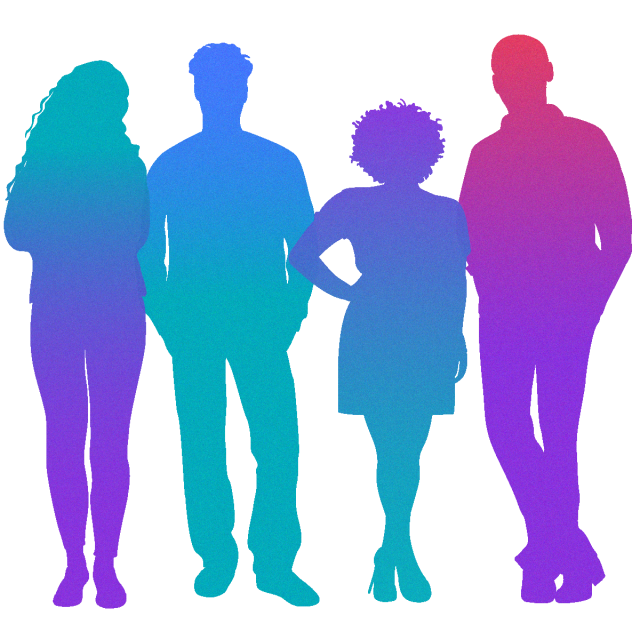Creating an inclusive environment for all
To deliver the best solutions, we need positive, inclusive environments with as much diversity in the room as possible.

We believe that to be seen for who you are — and to have the opportunity to feel a sense of belonging — is a universal human need. We believe it is our responsibility and duty to create the conditions for belonging for every team member and space to bring their authentic selves to work. That’s why we’re working to create an inclusive environment for everyone.
At TXI, we make space for curiosity and imperfection. We embrace and encourage curiosity and recognize we will all make mistakes and that imperfection is natural. So in order to make DEIB core to our culture, we value constanting learning. We are always enriching our DEIB vocabulary, understanding by hosting ongoing education programs, and bringing in outside DEIB educators. It’s our responsibility to be constantly learning more about the space, especially as new ideas emerge.
And as we learn, we strive for continuous improvement and individual growth. This means seeking diverse input and opinions beyond our own while staying open to occasional conflict and non-resolution.
We want to hold ourselves accountable for DEIB within our community. In doing so, we set a baseline against which we can measure change and seek to apply new insights and personal learnings we gain toward meaningful organizational growth.
Action and undertakings
- Strategic plan and targets to correct for overrepresentation
- Equity audit on hiring, recruiting and promotion
- A strong environment of curiosity, learning and growing
- Openness to non-resolution and productive conflict
Equity provides equitable access to resources based on the needs of oppressed groups.
We believe equal access to information is the cornerstone of our equity work. We commit to identifying what beliefs, ideas, processes, and practices are implicit and making them explicit so that everyone can understand, engage, and/or utilize them.
By transparently documenting our culture, organizational history, process, and policies, we ensure there is no hidden agenda and no specialized privileged access to information for those who have been here the longest to maintain any power or privileged insight.
Action and undertakings
- Documentation of our culture to make the implicit explicit
- Equitable access to resources and information across the company
- Equity as a continual lens to evaluate and evolve our tools, process, and approach
Inclusion is our responsibility to welcome others so that all can participate meaningfully.
We promote inclusion in the workplace by understanding the people both inside and outside our community. Inclusion starts with actively listening and engaging with the team to make sure everyone—not just the loudest or most privileged people in the company—have a voice.
With our clients, we help companies build transformational products. And those products are used by all types of people. The more we reflect on that audience, the better we’ll be at doing our job as designers, strategists, and engineers. That’s why we focus so much on diversity of social identity groups and enacting practices that promote equity to support them.
At TXI, when we make decisions, we ask who will be impacted by them. We invite those who will be impacted to have a voice in the room. We know that sometimes we will miss who is impacted, which is why we collaborate with the DEIB team and ask ourselves who we are missing, to determine both who is impacted and how to include them.
Action and undertakings
- Employee engagement surveys through Culture Amp
- Quarterly small-group roundtables with leadership to discuss company issues and questions
- Inclusion of those impacted in decision-making processes
Belonging is about building community and making people feel that they belong.
At TXI, we need to be able to learn from each other. To promote that learning and connection, we believe that to be seen for who you are—and to have the opportunity to feel a sense of belonging—is a universal human need. We believe it is our responsibility and duty to create the conditions for belonging for every team member. That’s why we’re working to create an environment that is inclusive for everyone.
We care about the individual and want to create a space for each individual to bring their authentic selves to work. As a result, we want to better understand and dedicate support to each person at TXI.
Action and undertakings
- Cohort onboarding is designed to foster a sense of belonging
- Regular connection opportunities between team members
- Resources to know and support each team member
Educating ourselves to better our community
As we learn how to make our products more accessible and inclusive, we apply those lessons to our future work and to ourselves.
Not only does this improve the accessibility and inclusivity of digital experiences broadly, but it also educates our client partners about how to work with issues of justice at the forefront of their organizations.
To better advance this work, we focus company-wide efforts on four justice pillars and cultivate partnerships within the communities already leading work in these areas. This ensures a deeper understanding of these pillars, their interconnectedness, and how we might use our privilege and passion most effectively.

Racial justice
DEIB primarily focused on Racial Justice for all of 2020, and since then, our work in this area has been centered around interrogating our understanding of white supremacy culture and how we can dismantle it.
We have explicit goals around correcting for racial over-representation within leadership, managers, and senior practitioners, and are actively making progress toward those goals.
Environmental justice
To date, our work around environmental justice has included auditing our waste footprint and providing sustainable energy incentives for employees. Further, we use Climate Vault for carbon swaps to offset the carbon footprint of our gatherings.
Disability justice
We continually iterate and improve on how we prioritize accessibility in our development and design practices, as we seek to expand accessible practices in all parts of our business and operations. Our accessibility working group provides guidance and training for all TXIers on both building accessible products and creating accessible employee experiences.
Gender justice
We established a women's ERG (Employee Resource Group) to increase awareness and action around issues that women face within TXI and beyond. Additionally, TXI has explicit goals around correcting for gender over-representation within leadership, managers, and senior practitioners, and are actively making progress toward those goals.
Sustainable Giving Fund
TXI is committed to building a sustainable business with broad-reaching social goals, not just financial ones. As a company, we seek to support and learn from our community partners committed to justice and change. We work with these community leaders to leverage our skills, experience and privilege to increase opportunities for others. With our Sustainable Giving Fund, we aim to advance our community partner’s efforts and create an impact in a lasting way.
How TXI is giving back to the community
Our fund prioritizes:
- Values alignment
- Black, Indigenous, and People of Color (BIPOC) leadership
- Organizational needs
- Financial impact
- Local and grassroots efforts
- Multi-year engagements
This document outlines our company's DEIB history. From its roots in a conversation to the current team that meets weekly, we wanted to document the varied paths we took to get here.



